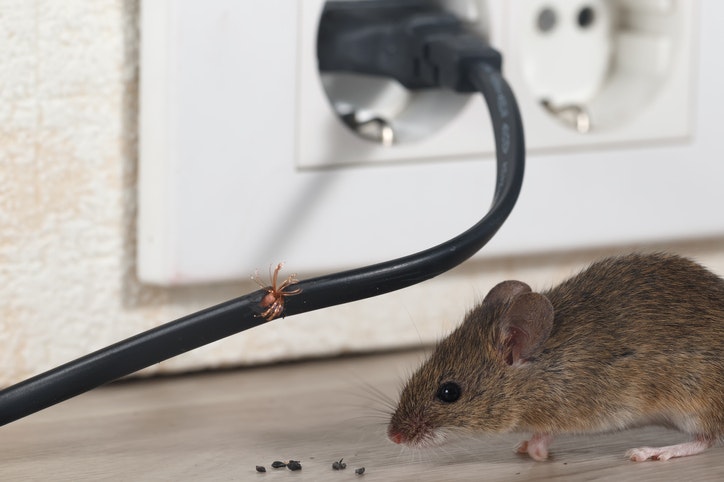Keep Rats & Mice Out of Your Home

Rats and mice leave evidence behind, so you may see where they've been without ever seeing them. Look for droppings, signs of gnawing, and their nests ares often made from shredded paper, cloth, or insulation. Make sure to wash any surfaces where rodents may have been and use rubber gloves when removing nests or droppings.
Here are some tips on how to get rid of rodents and how to keep them away:
- Use snap traps or battery-operated electrocution traps instead of glue boards. Glue-trapped animals don’t die immediately; the glue boards may catch other animals like your pets.
- Remove or clean up food that attracts rodents.
- Don’t leave dirty dishes in the sink—either wash or keep them in the dishwasher with the door closed.
- Keep food (for people and pets) in the refrigerator or in containers made of glass, metal, or heavy plastic with tight-fitting lids. Store birdseed, and grass seed in pest-proof containers.
- Remove and clean pet dishes after pets have eaten. Do not leave pet food out over night, especially outside.
- Empty garbage often. Outside, keep trash and recycling in cans with closed, tight-fitting lids.
- Fix leaking faucets and pipes as these can attract rodents.
- Seal holes and cracks and areas around pipes. Stuff scouring pads or knitted copper mesh into large gaps. Don’t use steel wool for this—it will rust.
- Throw away materials that rodents could use to make nests, like shredded paper, cotton or polyester batting, foam rubber, insulation, rags, and string
- Remove woodpiles, rock piles, and other debris piles. Store firewood and lumber at least 18″ above the ground and 18″ away from all structures.
- Make sure tree and shrub branches are at least three feet away from buildings.
- Get rid of ivy. Ivy provides shelter and food for rats. If you can’t remove it, cut it close to the ground.
- Use rodent-proof compost bins and never put meat in the compost.
- Standing water attracts thirsty rodents (and breeds mosquitoes). Turn over empty flower pots, and remove tires stored outdoors or drill holes in them so water can drain.
If you call a professional, ask if they offier less-toxic solutions like trapping and insist on pest-proofing services.
What You Should Know About Poison Baits
- Poison baits should be used as a last resort or in an emergency. There a danger of directly poisoning people or pets, but animals (such as outdoor cats and birds of prey) that eat poisoned mice or rats can also be killed. You may not know where exactly a poisoned animal will die and it may be behind walls, causing odors and breeding flies.
- Do not use rodent baits that are no longer allowed for use by consumers. These contain bromadialone, brodifacoum, difenacoum, or difethialone. These chemicals kill pets, birds, and wildlife.
